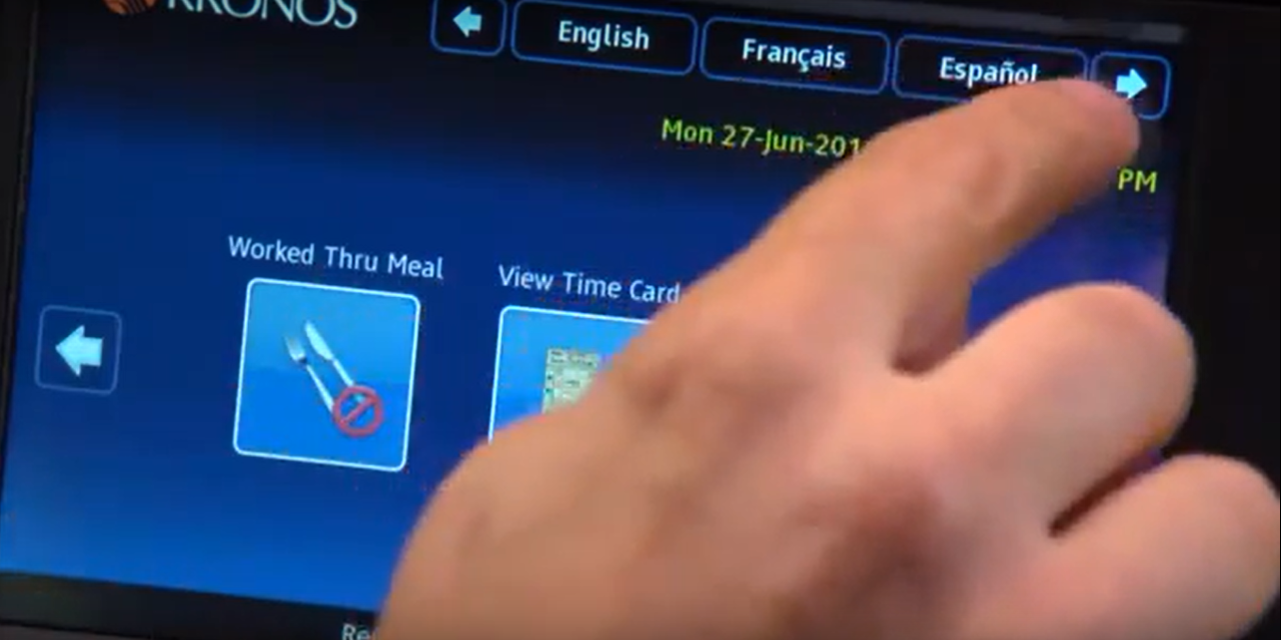Another Chicago federal judge has returned a class action lawsuit alleging workplace biometric law violations to Cook County court, finding that, while the plaintiff did not allege a concrete injury to qualify for federal jurisdiction, such injury is not necessary to sue for big money in Illinois courts.
U.S. District Judge Robert Gettleman issued the ruling Feb. 20, favoring Evelyn Hunter in her suit against Automated Health Systems, a national health services manager based in Pittsburgh. Hunter formerly worked for AHS in Cook County, according to the suit.
In April 2019 in Cook County Circuit Court, Hunter filed for a class action against AHS, saying the company had employees clock in and out by scanning their fingerprints on a so-called biometric timeclock. However, Hunter alleged AHS broke Illinois law by not obtaining workers’ informed consent before obtaining their prints and failing to tell them how long prints would be kept, how they would be used and how they would be destroyed.
Hunter wanted damages of $1,000 per violation, as allowed under the Illinois Biometric Information Privacy Act, estimating class members would number at least in the hundreds. Under the law, a violation could be defined as each time a worker scanned a fingerprint when punching the clock. With hundreds of potential class members using the punch clocks at least four times a day, damages could quickly mount into the millions of dollars.
AHS moved the case to U.S. District Court for the Northern District of Illinois in Chicago, on grounds any alleged violation of biometric law, regardless whether it alleges technical or concrete injuries, was reason to put the case in federal court.
However, Judge Gettleman said actual injury was needed to press the case in federal court. As the case progressed, he came to doubt there was allegation of actual injury, as established by prior U.S. Supreme Court rulings. After having the parties address the issue, Gettleman concluded there was no such injury.
“Plaintiff fails to allege that defendant collected her biometric data without her knowledge or created a risk that plaintiff’s data would fall into the hands of an unauthorized third party,” Gettleman said.
Further, Gettleman pointed out plaintiff acknowledged she is not “aware of any data breach, identity theft, or other similar loss,” with Gettleman adding: “There was no allegation of any dissemination, just a claim for a bare procedural violation.”
As a consequence of Gettleman’s determination, he sent the case back to Cook County Circuit Court, where the plaintiffs would be free to press their claims under Illinois legal precedent. A 2019 Illinois Supreme Court ruling held plaintiffs don't need to show they were ever actually harmed by an alleged violation of the state BIPA law to press their claims for big damage awards under the statute.
Hunter is represented by the Fish Law Firm, of suburban Naperville.
AHS is defended by the Chicago firm of Cozen O’Connor.
On Jan. 28, another Chicago federal judge, Virginia Kendall, sent another biometric suit back to circuit court on the same basis.
That case was against Compass Group, a national food service based in Charlotte, N.C. Compass vending machines require customers scan their fingerprints, but the suit alleged Compass did not secure authorization from customers or give them details of the biometric collection process.
Biometric lawsuits have been filed by the hundreds in Illinois courts in recent years, as lawyers have seized on Illinois data privacy law to sue companies that use technology to scan biometric identifiers, typically fingerprints or facial geometry. The suits first targeted major social media and technology giants, like Facebook, Google and Shutterfly. However, scores of smaller employers have since been hit with suits, primarily in Cook County Circuit Court.
